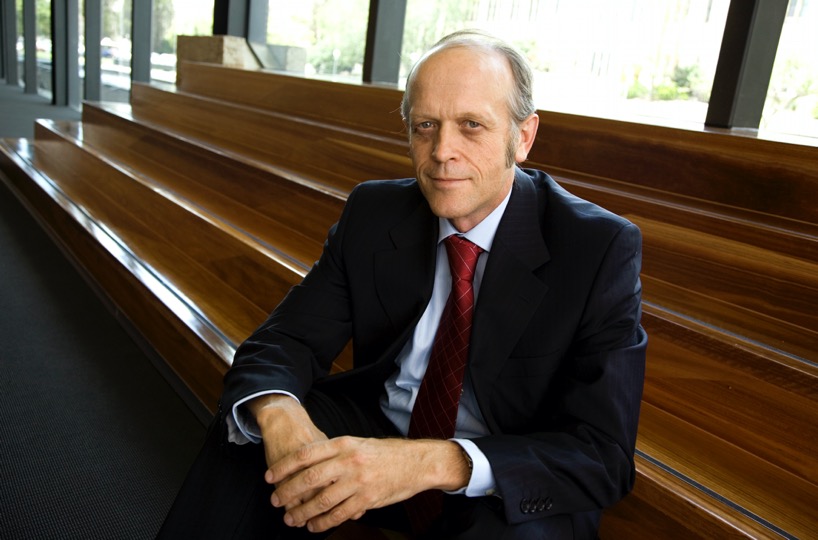2020 WiP Conference Webinar: Sensations Connections
The 2020 Postgraduate and Early Career Researcher "Work In Progress” Conference Schedule has arrived! We are thrilled to announce two incredible keynote speakers, Professor Susan Forde and Dr Matthew Ball, plus a stellar line-up of exciting presentations and sessions showcasing the variety of early career research taking place across Communication and Arts. Register below for the Webinar link.
This year, our WiP conference is held in memory of the late Professor Tom O' Regan after his passing in July. Tom was a reservoir of knowledge for UQ School of Communication and Arts students, guiding many of us from the very beginning of our academic journeys. He always had bundles of stories, images, and anecdotes to share, as well as a peal of really infectious laughter. He is dearly missed.

Annual $1000 Dr John McCulloch Memorial Prize for best paper
The Dr John McCulloch Memorial Prize is a $1000 prize awarded annually in memory of Dr John McCulloch to the best paper presented by a HDR student in the School of Communication and Arts at the Work in Progress (WiP) conference. All UQ School of Communication and Arts students presenting at the conference are eligible. To enter, please submit your fully referenced 2000-word essay (excluding bibliography) by 5pm, November 17. Please submit any questions to uqwip2020@gmail.com.
Day 1: Postgraduate and Early Career Researcher "Work In Progress” Conference Programme
Thursday 3 December 2020

Welcome
10–10.20am
Opening welcome and Acknowledgement of Country, conference dedication to Professor Tom O'Regan and introductions.
Keynote
10.20 –11.20am

Media and social change in the academy: Intellectual responsibility and scholarly activism in a disrupted and disruptive world
Professor Susan Forde
Abstract
The Australian higher education sector is in the throes of a crisis. Seemingly triggered by COVID-19 and the removal of one of its core sources of funding – international students – it is in fact part of a more sustained shift in the way governments enunciate and narrate the role of universities in society. This address takes us back, then, to some core ideas about the place of the intellectual in advanced democratic societies by drawing on ideas around the public responsibility of intellectuals, with an intended focus on media and social change. Recent enunciations of the multiple roles of media in society identify not only the informational and facilitative part that media play, but also the radical position that media can take (Christians et al, 2009). This is particularly evident in competitive market societies, where the free market system usually leads to significant inequalities in power, opportunity, education, social status, and wealth. Radical journalism, then, in this context “seeks to help minorities articulate an alternative set of goals that represent the needs and just moral claims of all, especially the marginalized, the poor, and the dispossessed” (Christians et al 2009: 179-180). This address draws links between radical media, activism, and the responsibility of scholars engaging in this space to fulfil their own commitments to social progress and social justice through encounters with such movements and their media. The paper uses an example of research with activists from the Australian Indigenous land rights movement, combining journalistic research, media research methods, and oral histories to privilege the voice of Aboriginal activists in telling their story of the struggle for land rights and equality. This is achieved by an engagement with decolonising research methods, and Indigenous ways of engaging in deep conversation. Importantly, its starting point is a recognition of the researcher/academic’s position of privilege which, according to Chomsky (1967, and 2011) “yields opportunity, and opportunity confers responsibilities”. The research is designed to counteract the established ‘story’ of Indigenous peoples’ struggle for land and recognition, following the disempowerment and dispossession of colonisation. In this, the paper demonstrates the ways that contemporary scholars can optimise their role as public intellectuals to help address the errors of the past, and the challenges of the present.
Susan Forde is Professor of Journalism at Griffith University, Brisbane and Director of the Griffith Centre for Social and Cultural Research. She has authored or co-authored three books and more than 50 journal articles and book chapters on media and journalism and is Founding Editor with Professor Chris Atton of the Journal of Alternative and Community Media. In 2018 she was a Visiting Scholar with the Membership Puzzle Project at New York University, examining issues of public trust, transparency and the media. She is an Editorial Board member of The Conversation and on the Advisory Committee for the esteemed literary journal, Griffith Review. She was Vice President (Research) of the Journalism Education and Research Association 2017-2018, and worked as a journalist in both mainstream and alternative/community media sectors before joining academia.
Panel 1: Media Adaptations in New Digital Worlds
11.20am–12.20pm

'Good morning, here’s today’s news’: Connecting with readers through chatbot journalism
Presented by Catherine Young
Lens on Jaya Savige: Digital Lexicons in Contemporary Australian Poetry
Presented by Anna Black
Community Radio and the Empowerment of Women in Informal Settlements in Kenya
Presented by Doreen Busolo
Break and Networking Opportunity
12.20–12.40pm
Casual networking in small virtual groups. Flexible attendance, so you can switch groups and move around.
Panel 2: Live Acts: Performance, Production and Creation
12.40–1.40pm

Resisting directions: exploring possibilities for performing Shakespeare in the twenty-first century
Presented by Caitlin West
Creating Lifeworlds: Infrastructure, Materiality and Environment in Film Studio Production
Presented by Hrishikesh Arvikar
Socially distanced liminality: How online festivals are fostering liminal experiences during COVID-19
Presented by Hannah Mason
Break and Networking Opportunity
1.40–2pm
Casual networking in small virtual groups.
Panel 3: Worlds Beyond Genre Limits: Trauma, Magic Realism and Sci-fi
2–3pm

The Authentic City: Connections and tensions between a real-world city and its fantastic counterpart
Presented by Clare McEniery
Strange and Familiar: Reworking Love and Intelligence in Science Fiction Script Writing
Presented by Richard Finn
Perception is ‘apperceived’ reality: embodying trauma in Young Adult Literature
Presented by Taryn Bashford
Creative Practice Roundtable Discussion

3–3.45pm
Moderator:Associate Professor Venero Armanno has published two collections of short stories and ten novels, three of which have been published internationally. In 2002 his novel The Volcano won Best Australian Fiction Book in the Queensland Premier's Literary Awards, and the same novel was shortlisted for the Courier Mail Book of the Year Award. His latest novel, Burning Down, was published in 2017.
Panellists:
Richard Finn, Practice-led Science Fiction Script, University of the Sunshine Coast
Clare McEniery, Practice-led Young Adult Fantasy Novella, University of Queensland
Taryn Bashford, Practice-led Young Adult Magical Problem Novel, University of Queensland
Jessie Cole, Practice-led Experimental Memoir, University of Queensland
Break and Networking Opportunity
3.45–4pm
Casual networking in small virtual groups.
Panel 4: Dis(place)ment: Connections to Place
4–5.15pm

‘Send the report with your body’: Ecological Connection and the Body in Brenda Hillman’s Ecopoetics.
Presented by Madeline Dale
Learning intercultural communication: students, universities and policy
Presented by Marlene Kastner
Conserving nature through a psychologically owning nature frame: A conceptual elaboration
Presented by Xiongzhi Wang, Kelly Fielding, and Angela Dean
White Russians from Harbin to Australia: identity amidst disruption and dislocation
Presented by Tania Layden
Day 2: Postgraduate and Early Career Researcher "Work In Progress” Conference Programme
Friday 4 December 2020

Welcome
10–10.10am
Opening remarks and Acknowledgement of Country.
Keynote
10.10–11.10am

Disruptive New Pathways for Queer Criminology
Dr Matthew Ball
Abstract
Queer criminology has emerged as an attempt to address significant oversights in the disciplines of criminology and criminal justice studies – particularly the limited attention paid to the criminal justice experiences of lesbian, gay, bisexual, transgender, and queer (LGBTQ) people. Inspired by the diverse meanings of the concept of “queer”, the field has developed along numerous paths that seek, in various ways, to disrupt criminal justice knowledges and practices.
Drawing on the conference themes of connection, disruption, and sensation throughout, this paper will explore two important new pathways for queer criminology. The first highlights the directions it might take beyond the global North. It will interrogate the global ambitions of queer criminology, critically questioning its ability to apply in the global South and highlighting the key issues that scholars from the global North must reflect on if it seeks to do so. The second pathway that will be explored considers how queer criminology in the global North might disrupt its own orthodoxies. Specifically, through an archival analysis of correspondence with incarcerated queer people, this paper will consider the ongoing role of the prison in policing sexuality and gender, the multiple ways in which queer people express their sexual and gender subjectivities under carceral governance, and the how these insights can ‘queer’ not just our narratives of the lives of incarcerated LGBTQ people, but the directions of queer criminology more broadly.
Dr Matthew Ball is an Associate Professor in the School of Justice at Queensland University of Technology. His research focuses on the intersections between sexuality, gender, and criminal justice. Matthew has written and edited two foundational texts in the field of queer criminology – Criminology and Queer Theory: Dangerous Bedfellows? (Palgrave) and Queering Criminology (co-edited with Angela Dwyer and Thomas Crofts, Palgrave).
Panel 1: Sights/Sites of Power: Politics, Propaganda and Polarization
11.20am–12.50pm

To be heard and paid for: The merge of interests between online opinion websites and opinion writers of nobody
Presented by Achmad Supardi
Photography and Authoritarian Democracy at the Exhibition of the Fascist Revolution (1932)
Presented by Christian Rizzalli
“Streets is Taking All Of It, You Made Yo’ Bed”: Understanding the British Black Lives Matter Movement Through the Prism of Austerity and Post-Colonial Melancholia.
Presented by Saran Singh
Shifting from the ‘White Gaze’ on Black Bodies in Philippine Collegiate Basketball: Toward a Structural Understanding of Covert Racism in the Global South
Presented by Satwinder Rehal
Break and Networking Opportunity
12.50–1.10pm
Casual networking in small virtual groups.
Panel 2: Subversive Erotics: Touch, Body, and Defiance
1.20–2.20pm

The Challenge and Necessity of Distance in Anastasia Booth’s Teresa (2016)
Presented by Grace Jeremy
Madonna lactans and Mary’s Milk: Breastfeeding and the Renaissance Family Unit
Presented by Olivia Trenorden
Satiating eronormativity: Asexual threat and queer defiance in The Hunger Games
Presented by Rosie Clarke
Break and Networking Opportunity
2.20–2.40pm
Casual networking in small virtual groups.
Panel 3: Terrains of Bodies: Trauma, Testimony and Truth
2.40–3.40pm

Cyber Sex: Materiality, Digitality and Contemporary Feminisms in Cam (2018)
Presented by Bonnie Evans
“Surviving is some kind of sin:” Altered Languages of Victimhood in Chanel Miller’s Know My Name
Presented by Jasmine Sandes
Disruptive structures — making space for complexity
Presented by Jessie Cole
Break and Networking Opportunity
3.40–4pm
Casual networking in small virtual groups.
Panel 4: Digital ‘Selves’: AI, Aesthetics and Anatomy

4–5pm
What If Your Bookshelf is a Llama?
Presented by Emily Baulch
Filtering Reality: how Augmented Reality (AR) technologies shift user practices and representations through media platforms
Presented by Kiah Hawker
Data Bodies: Anatomical Art and Digital Trace
Presented by Vicky Attenborough
Dr John McCulloch Memorial Prize Announcement
5–5.20pm
Closing remarks and Dr John McCulloch Memorial Prize Announcement.
